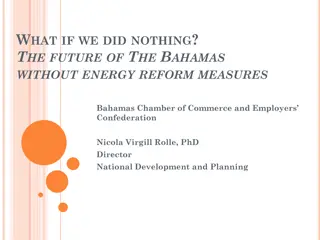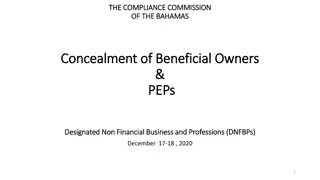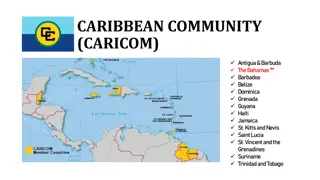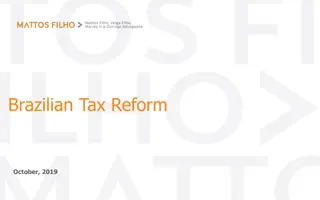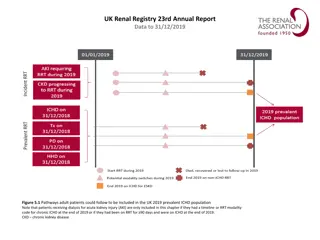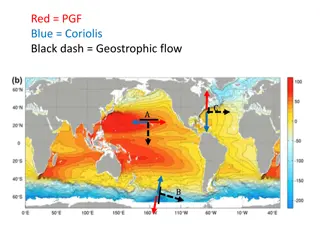
Exploring Nordic Liberalism and Economic Policies in Sweden and Iceland
Dive into the rich history of Nordic liberalism through the works of Professor Hannes H. Gissurarson, highlighting the Swedish and Icelandic traditions of liberalism. Learn about the evolution of economic policies, the impact on GDP per capita, and important figures such as Johan August Gripenstedt and Jon Sigurdsson. Discover the nuances of classical liberalism and how it has shaped the socioeconomic landscape in these countries.
Download Presentation

Please find below an Image/Link to download the presentation.
The content on the website is provided AS IS for your information and personal use only. It may not be sold, licensed, or shared on other websites without obtaining consent from the author. If you encounter any issues during the download, it is possible that the publisher has removed the file from their server.
You are allowed to download the files provided on this website for personal or commercial use, subject to the condition that they are used lawfully. All files are the property of their respective owners.
The content on the website is provided AS IS for your information and personal use only. It may not be sold, licensed, or shared on other websites without obtaining consent from the author.
E N D
Presentation Transcript
Nordic Liberalism Professor Hannes H. Gissurarson APEE, Bahamas: Classical Liberalism in Europe 5 April 2019, 8:00 9:15 [2.A.3]
Selected Writings in 201618 Icelandic Liberalism, three papers for Econ Journal Watch The Nordic Models (Brussels: New Direction, 2016) In Defence of Small States (New Direction, 2016) Green Capitalism: How to Protect the Environment by Defining Private Property Rights (New Direction, 2017) Voices of the Victims: Notes Towards a Historiography of Anti- Communist Literature (New Direction, 2017) Totalitarianism in Europe: Three Studies (Brussels: ACRE, 2018) Why Conservatives Should Support the Free Market (New Direction, 2018) Spending Other People s Money: A Critique of Rawls and Piketty (New Direction, 2018) Foreign Factors in 2008 Icelandic Bank Collapse (Reykjavik: Ministry of Finance, 2018)
Strong Swedish Liberal Tradition Johan August Gripenstedt Anders Chydenius
Even Liberals in Little Iceland Jon Sigurdsson Jon Thorlaksson Arnljotur Olafsson
2nd Swedish Model 197090: Radical Redistributionism
Atlas Shrugged: Sweden 197090 In 1870 1970 many entrepreneurs, large companies 1970 1990, capitalists and entrepreneurs, Kamprad (IKEA), Rausing (Tetrapak), etc., left Sweden Entrepreneurship diminished Value erosion: worth ethic declined, shirking increased Almost like a Randian nightmare
Swedens Fall and (Partial) Rise % of GDP/capita in US 105 100 95 90 85 80 75 1964 1969 1974 1979 1984 1989 1994 1999 2004 2009
Culture Matters: Swedes GDP/capita 2008 $ Swedish-Americans Average US Swedes in Sweden 0 10000 20000 30000 40000 50000 60000
Comparison of Northern Countries GDP/capita $ Finland Denmark Iceland Sweden Manitoba S-Dakota Minnesota N-Dakota Norway Saskatchewan Alberta 0 20000 40000 60000 80000
A Few Comments on Little Iceland In Iceland, (classical) liberals gained intellectual hegemony in the 1980s, reinforced by collapse of communism in the 1990s Comprehensive and successful liberal reforms implemented in 1991 2004 under leadership of David Oddsson: tax cuts, privatisation, strengthening of pension funds and quota system in fisheries, public administration reform, transparency, free trade and free capital movements with EEA membership
Lower tax rate: Increased revenue 55 1.3 50 1.2 45 1.1 40 Tax Revenue as % of GDP Corporate Tax Rate 35 1.0 30 0.9 25 0.8 20 15 0.7 1990 1995 2000 2003 Corporate Tax Rate Revenue as % of GDP
Icelandic Discoveries or Innovations 1. Icelandic Commonwealth 930 1262: restitution, crimes compensated; private enforcement of law; choice between protective agencies or chieftains 2. America discovered in 1000! And lost again. 3. Quota system in fisheries since 1975 (comprehensive since 1991): permanent, transferable rights to harvest a given amount of total allowable catch, creating incentive to minimise cost 4. If depositors get priority claims, then government guarantees of banks unnecessary (moral hazard)
Conclusions Nordic countries successful despite, not because of redistribution Main factors: Free trade, rule of law, social cohesion, moral values (hard work, thriftiness, honesty) Nordic people even more successful in North America than in Europe Liberal reforms in Iceland 1991 2004 quite successful Best evidence: Rapid recovery of Iceland after bank collapse!



